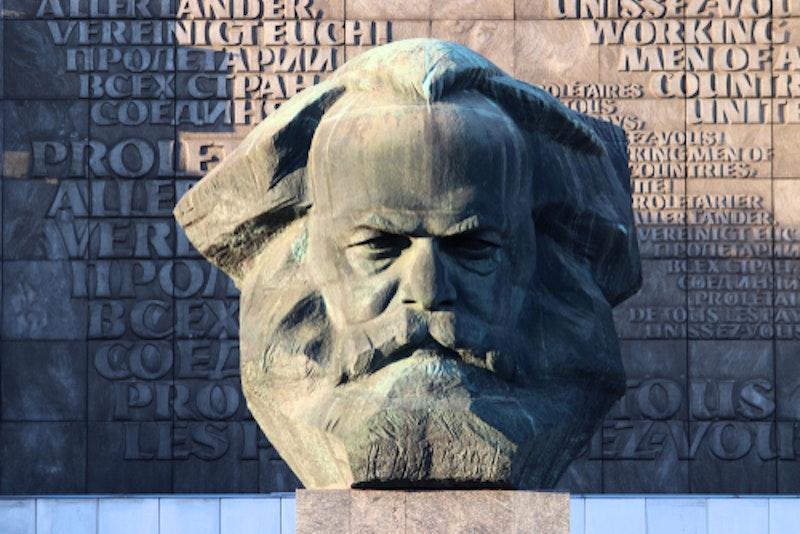Study Notes
What were Karl Marx's key contributions to economic thought?
- Level:
- AS, A-Level, IB
- Board:
- AQA, Edexcel, OCR, IB, Eduqas, WJEC
Last updated 2 Aug 2023
Karl Marx, a philosopher, economist, and social theorist, made several key contributions to economic thought. His ideas have had a profound impact on the fields of economics, political science, and sociology.

Here are some of Marx's key contributions:
- Labour Theory of Value: Marx's labour theory of value posits that the value of a commodity is determined by the amount of socially necessary labour time required to produce it. He argued that labour is the source of all value and that capitalists appropriate surplus value by exploiting the labour of workers. This theory formed the basis for Marx's critique of capitalism and his analysis of class relations.
- Historical Materialism: Marx developed the theory of historical materialism, which proposes that the structure and development of society are shaped primarily by the material conditions of production. He argued that economic systems, such as feudalism and capitalism, give rise to specific social relations and class struggles. According to Marx, the transition from capitalism to communism is an inevitable outcome of historical development.
- Class Struggle: Marx's analysis of class struggle forms a central theme in his work. He argued that throughout history, societies have been characterized by the conflict between the bourgeoisie (owners of the means of production) and the proletariat (working class). Marx believed that the inherent contradictions of capitalism would lead to heightened class conflict and ultimately result in a proletarian revolution.
- Alienation: Marx's theory of alienation explores the idea that under capitalism, workers are estranged from the products of their labor, the process of production, their own human essence, and from one another. He argued that alienation is a consequence of the capitalist mode of production, which treats labor as a mere commodity and separates workers from the fruits of their labor.
- Critique of Capitalism: Marx's analysis of capitalism was a fundamental critique of the system. He argued that capitalism leads to the concentration of wealth and power in the hands of a few, exploitation of the working class, cyclical economic crises, and alienation of individuals from their labor. Marx believed that these inherent contradictions would ultimately lead to the collapse of capitalism.
- Concept of Communism: Marx envisioned communism as a classless society where the means of production are collectively owned and controlled by the working class. In this society, there would be no private property, no exploitation, and economic decisions would be made collectively for the benefit of all. Marx saw communism as the resolution of class conflict and the realization of human freedom and equality.
Marx's ideas have also been criticized by economists who believe that the free market is a more efficient way to organize the economy.
Marx's contributions to economic thought are still debated today. However, there is no doubt that he was one of the most influential economists of the 19th century. His work has had a profound impact on the way we think about society, economics and politics.
You might also like

The Story of Economics
11th March 2011

Edible Economics - A Hungry Economist Explains the World
20th October 2022
What is neoclassical economics?
Study Notes